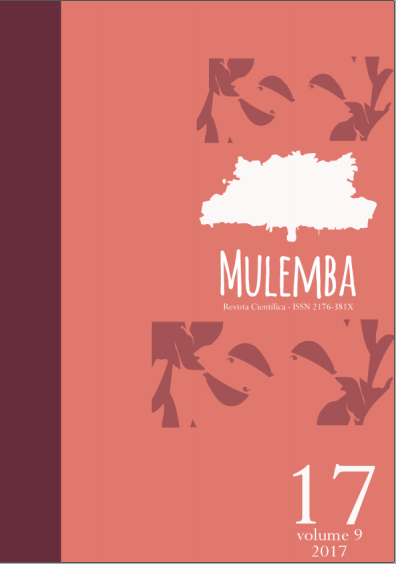The Documentarist Production of Licínio Azevedo: Mozambican Images, Remarks and Narratives of the Post-Independence
DOI:
https://doi.org/10.35520/mulemba.2017.v9n17a14600Keywords:
mozambican documentary, Licínio Azevedo, film analysis.Abstract
The documentary has shown a great capacity to contribute to the deep understanding of current issues or retaken under historical research perspectives. Over the years there have been numerous topics covered, analyzed or revealed through the documentary in Africa. As far as the Mozambican flm experience is concerned, throughout history there has been a signifcant production of documentaries in the country, many of them important for the understanding of postcolonial and post-civil wars experience. One of the great names of this cinematography is Licínio Azevedo. It is proposed with this study to discuss the relationship between cinema, history and memory from the documentarist production of the flmmaker. The study and analysis of the flms is centered in the sociohistorical perspective of flmic analysis. The frst conclusions of this study show that the flms of Licínio Azevedo offer to the spectator representative images of Mozambican spaces and socio-cultural practices, in a positive way, it is worth emphasizing, they deal with historical issues of the Mozambican context, still striking in local imaginary and daily life and provide different visions about being a Mozambican. In addition, the flms also constitute a kind of collective visual memory of the country in the periods and spaces emphasized. The importance of the said and unsaid flms can bring to the construction of a memory, be it collective or individual, become points of reference for any sociohistorical study, and also aesthetic, especially when this information, often forgotten or ignored, reveal distinct interpretations of history or offcial memory.Downloads
Download data is not yet available.
Downloads
Published
2017-12-21
Issue
Section
Articles
License
Authors who publish with this journal agree to the following terms:
- Authors retain copyright and grant the journal right of first publication with the work simultaneously licensed under a Creative Commons Attribution License that allows others to share the work with an acknowledgement of the work's authorship and initial publication in this journal.
- Authors are able to enter into separate, additional contractual arrangements for the non-exclusive distribution of the journal's published version of the work (e.g., post it to an institutional repository or publish it in a book), with an acknowledgement of its initial publication in this journal.
- Authors are permitted and encouraged to post their work online (e.g., in institutional repositories or on their website) prior to and during the submission process, as it can lead to productive exchanges, as well as earlier and greater citation of published work (See The Effect of Open Access).

